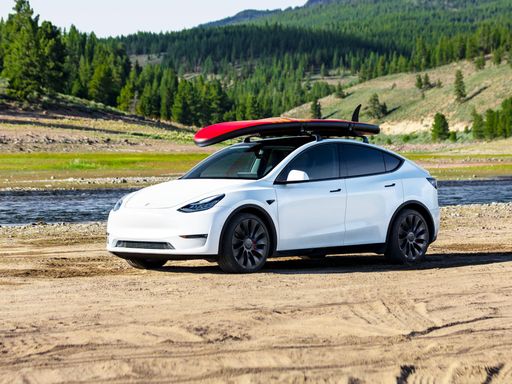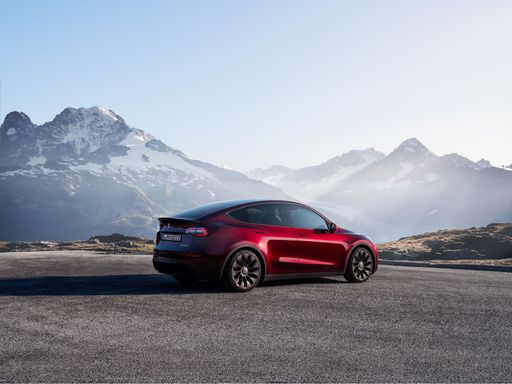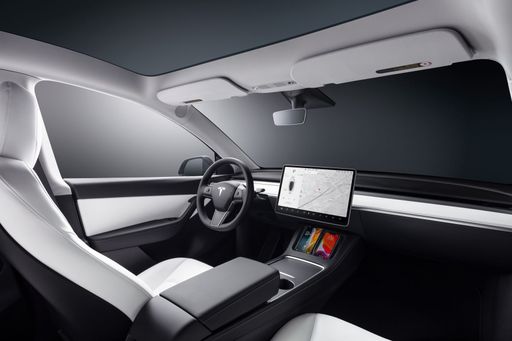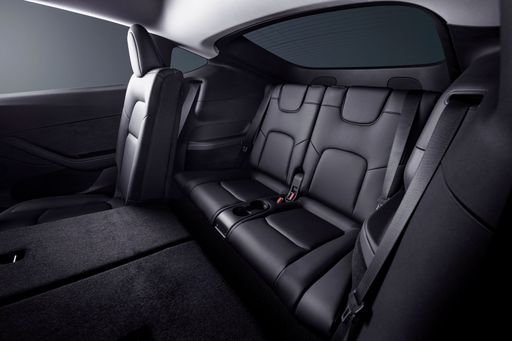Peugeot 208 vs Tesla Model Y – Which car suits you better?
Everyday use, family trips or long-distance drives – here’s where the differences show.
Discover whether Peugeot 208 or Tesla Model Y fits your lifestyle better.
Here’s where it gets real: The technical differences in detail
Costs and Efficiency: Looking at overall running costs, both models reveal some interesting differences in everyday economy.
Peugeot 208 has a decisively advantage in terms of price – it starts at 20700 £, while the Tesla Model Y costs 38600 £. That’s a price difference of around 17880 £.
In terms of energy consumption, the advantage goes to the Tesla Model Y: with 13.90 kWh per 100 km, it’s slight more efficient than the Peugeot 208 with 14.10 kWh. That’s a difference of about 0.20 kWh.
As for range, the Tesla Model Y performs noticeably better – achieving up to 622 km, about 190 km more than the Peugeot 208.
Engine and Performance: Power, torque and acceleration say a lot about how a car feels on the road. This is where you see which model delivers more driving dynamics.
When it comes to engine power, the Tesla Model Y has a significantly edge – offering 627 HP compared to 156 HP. That’s roughly 471 HP more horsepower.
In acceleration from 0 to 100 km/h, the Tesla Model Y is decisively quicker – completing the sprint in 3.50 s, while the Peugeot 208 takes 8.30 s. That’s about 4.80 s faster.
In terms of top speed, the Tesla Model Y performs somewhat better – reaching 250 km/h, while the Peugeot 208 tops out at 200 km/h. The difference is around 50 km/h.
There’s also a difference in torque: the Tesla Model Y pulls markedly stronger with 493 Nm compared to 270 Nm. That’s about 223 Nm difference.
Space and Everyday Use: Cabin size, boot volume and payload all play a role in everyday practicality. Here, comfort and flexibility make the difference.
Both vehicles offer seating for 5 people.
In curb weight, the Peugeot 208 is strongly lighter – 1165 kg compared to 1976 kg. The difference is around 811 kg.
In terms of boot space, the Tesla Model Y offers significantly more room – 822 L compared to 352 L. That’s a difference of about 470 L.
In maximum load capacity, the Tesla Model Y performs strongly better – up to 2022 L, which is about 859 L more than the Peugeot 208.
When it comes to payload, Tesla Model Y minimal takes the win – 472 kg compared to 430 kg. That’s a difference of about 42 kg.
Our conclusion: The Tesla Model Y proves to be outperforms the competitor in nearly every area and thus becomes our DriveDuel Champion!
Overall, Tesla Model Y is the better all-rounder in this comparison.
Peugeot 208
The Peugeot 208 exudes a distinctive French charm, combining sleek lines with an assertive stance on the road. Inside, it offers a modern and sophisticated cabin, complete with intuitive technology and high-quality finishes to enhance the driving experience. Its agile handling and efficient performance make it a delightful choice for both city commuting and longer journeys.
details @ www.media.stellantis.com
@ www.media.stellantis.com
 @ www.media.stellantis.com
@ www.media.stellantis.com
 @ www.media.stellantis.com
@ www.media.stellantis.com
 @ www.media.stellantis.com
@ www.media.stellantis.com
Tesla Model Y
The Tesla Model Y stands out in the electric vehicle market with its sleek design and impressive range. Its interior is minimalist yet stylish, offering a spacious cabin that enhances the driving experience. The Model Y also features advanced technology, including an intuitive infotainment system, making it a leader in innovative motoring.
details @ tesla.com
@ tesla.com
 @ tesla.com
@ tesla.com
 @ tesla.com
@ tesla.com
 @ tesla.com
@ tesla.com

|

|
|
|
|
Costs and Consumption |
|
|---|---|
|
Price
20700 - 35200 £
|
Price
38600 - 53100 £
|
|
Consumption L/100km
4.5 - 5.2 L
|
Consumption L/100km
-
|
|
Consumption kWh/100km
14.1 - 15.4 kWh
|
Consumption kWh/100km
13.9 - 16.2 kWh
|
|
Electric Range
362 - 432 km
|
Electric Range
500 - 622 km
|
|
Battery Capacity
46 - 51 kWh
|
Battery Capacity
64.5 - 85 kWh
|
|
co2
0 - 117 g/km
|
co2
0 g/km
|
|
Fuel tank capacity
44 L
|
Fuel tank capacity
-
|
Dimensions and Body |
|
|---|---|
|
Body Type
Hatchback
|
Body Type
SUV
|
|
Seats
5
|
Seats
5
|
|
Doors
5
|
Doors
5
|
|
Curb weight
1165 - 1530 kg
|
Curb weight
1976 - 2108 kg
|
|
Trunk capacity
309 - 352 L
|
Trunk capacity
822 L
|
|
Length
4055 mm
|
Length
4790 - 4796 mm
|
|
Width
1745 mm
|
Width
1921 mm
|
|
Height
1430 mm
|
Height
1611 - 1624 mm
|
|
Max trunk capacity
1118 - 1163 L
|
Max trunk capacity
2022 L
|
|
Payload
380 - 430 kg
|
Payload
418 - 472 kg
|
Engine and Performance |
|
|---|---|
|
Engine Type
Petrol, Electric, Petrol MHEV
|
Engine Type
Electric
|
|
Transmission
Manuel, Automatic
|
Transmission
Automatic
|
|
Transmission Detail
Manual Gearbox, Reduction Gearbox, Dual-Clutch Automatic
|
Transmission Detail
Reduction Gearbox
|
|
Drive Type
Front-Wheel Drive
|
Drive Type
Rear-Wheel Drive, All-Wheel Drive
|
|
Power HP
101 - 156 HP
|
Power HP
299 - 627 HP
|
|
Acceleration 0-100km/h
8.3 - 10.9 s
|
Acceleration 0-100km/h
3.5 - 5.9 s
|
|
Max Speed
150 - 200 km/h
|
Max Speed
201 - 250 km/h
|
|
Torque
205 - 270 Nm
|
Torque
420 - 493 Nm
|
|
Number of Cylinders
3
|
Number of Cylinders
-
|
|
Power kW
74 - 115 kW
|
Power kW
220 - 461 kW
|
|
Engine capacity
1199 cm3
|
Engine capacity
-
|
General |
|
|---|---|
|
Model Year
2023 - 2025
|
Model Year
2025
|
|
CO2 Efficiency Class
D, A, C
|
CO2 Efficiency Class
A
|
|
Brand
Peugeot
|
Brand
Tesla
|
What drive types are available for the Peugeot 208?
The Peugeot 208 is offered with Front-Wheel Drive.
The prices and data displayed are estimates based on German list prices and may vary by country. This information is not legally binding.
